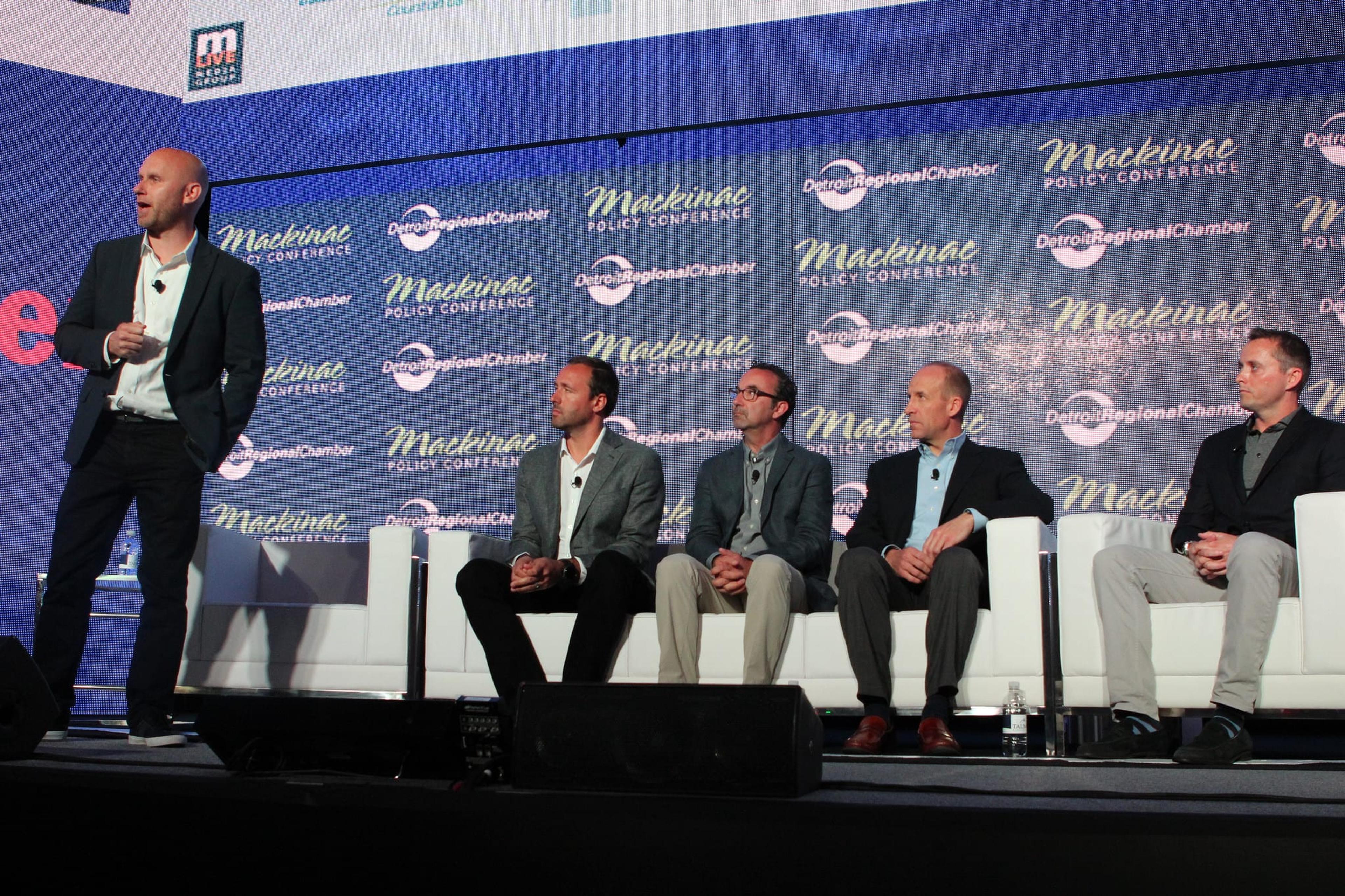Is Michigan Ready for the Internet of Things and Technology Disruption?

David Murray
| 3 min read
David Murray is the Manager of Social Media for Blue...

We are currently living in the third wave of the internet where everything is connected. In 2008, more objects were connected to the internet than people – 6.7 billion objects to be exact. As of now this number has increased to 9 billion. By 2020, it is predicted that more than 50 billion objects will be connected to the internet. This hyper-evolving connectivity has fundamentally changed the rules of business. It has also created questions as to what these new rules actually are. Michigan’s industries will need to evolve in an effort to keep up with changing technology and consumer behavior. But what does this mean for our state, its businesses, and the economy? How should we approach this challenge? What should be our response to this technology disruption? Two sessions at this year’s Mackinac Policy Conference tackled these questions. Taking the stage first was futurist, Brain David Johnson, who shared that computational power is only getting larger and larger. At the same time the physical size required to process that power is rapidly becoming smaller. Faced with this change, communities, cities, and regions will begin to see themselves as platforms. As a result, healthy competition for ideas, resources and talent will increase. This will force companies to change their process-driven production models into experiences around a product or service. Tom Devries, principal at Thoughtfull Design, lead a panel elaborating on how a company’s infrastructure used to be an advantage, but nowadays it’s often a roadblock weighing the company down. The new normal demands an adaptive organization that produces not just a product, but an experience that people can make their own and unite around. This will require sharing of data, new policies and business models. The panel also shared that barriers between large organizations and smaller startups are dissolving. By collaborating and sharing knowledge and resources, these idea incubators are creating new business opportunities for Michigan. Software and the systems they live in are getting smarter, and the consumer’s journey is no longer a straight line. Michigan’s business leaders recognize this change and are moving away from “one solution” platforms to adaptive systems that connect people with products in a meaningful way. One thing remains the same; it’s still all about people. “The internet of things is happening. But it is either being enabled by you, or it is happening to you,” stressed Devries. That said, Michigan’s economic future is still in the hand of its population. David Johnson encouraged the audience that people, not technology will lead the charge. “A mix of generations will occur. The ‘can we’ and ‘how do we’ will be replaced with ‘what do we want to do’ and ‘why do we want to do it.’ We are only held back by the limits of our imagination.” The sessions highlighted above consisted of a keynote address by Brain David Johnson, and a panel led Tom Devries and included Rick DeVos, Founder and CEO of Start Garden, Rob Huber, Vice President of Innovation and Ventures, Faurecia, Bryan Jones, CEO, JR Automation, and Brian Steketee, CEO and Founder of Modustri Photograph taken and owned by Detroit Regional Chamber https://www.flickr.com/photos/detroitchamber/





